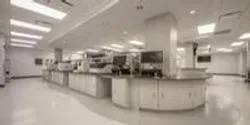News

The science of nutritional genomics is an emerging discipline and holds potential for targeting dietary intervention that may affect health, according to a new position paper from the Academy of Nutrition and Dietetics.

Lawrence Livermore National Laboratory (LLNL) has awarded a major subcontract to FEMTOLASERS Produktions GmbH (based in Vienna, Austria) as part of the construction of a revolutionary high-power laser system for the European ELI-Beamlines science facility in the Czech Republic.

Designing nanomedicine to combat diseases is a hot area of scientific research, primarily for treating cancer, but very little is known in the context of atherosclerotic disease. Scientists have engineered a microchip coated with blood vessel cells to learn more about the conditions under which nanoparticles accumulate in the plaque-filled arteries of patients with atherosclerosis, the underlying cause of myocardial infarction and stroke.

The San Diego Supercomputer Center (SDSC) at the University of California, San Diego is kicking off its 2014 series of “Data Mining Boot Camps”

In an effort to better meet customer needs for instrument design and development, Shimadzu Scientific Instruments (SSI) has opened its new Shimadzu Solution Center. The facility, operating out of SSI’s North American headquarters in Columbia, Md., will enhance collaboration with customers and enable the company to more quickly respond to customer needs for new scientific instruments, software platforms, and applications.















